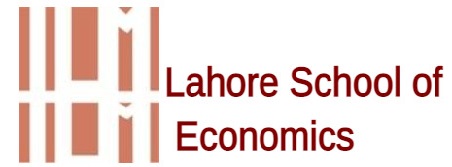BFA Visual Arts
| First Year | Second Year | Third Year | Fourth Year |
|---|---|---|---|
| Winter Term: Sept. – Dec | Winter Term: Sept. – Dec | Winter Term: Sept. – Dec | Winter Term: Sept. – Dec |
|
|
|
|
| Spring Term: Jan. – May | Spring Term: Jan. – May | Spring Term: Jan. – May | Spring Term: Jan. – May |
|
|
|
|
| Summer Term: June – Aug | |||
|
|
Art Residency Field Assignment and Report (Internship) (3) |
Length of BFA programme and Graduation Requirements: The BFA in Visual Arts is a 4 year degree programme requiring completion of a minimum of 126 credit hours. The Head of Department may allow substitution in courses for purposes of completion of required credit hours. A CGPA of 2.0 is required to graduate from the programme.
Credit Hours: All courses are indicated as (4 credit hours), (3 credit hours) and (2 credit hours). * are offered to non-Muslim students.
Academic Year: The academic year consists of 2 Semesters (Winter, Spring) and an optional Summer Term for deficiency/ failure/repetition courses. The Winter Semester from September - December and Spring Semester from January – May consist of 16-18 weeks each including one week for Mid Semester Exams and one week for Final Semester Exams. The optional Summer Term for deficiency/failure/repetition courses will be from June – August for 9-11 weeks.
Course Load: Students can take a maximum of 21 credit hours during the regular winter and spring semesters and a maximum of 8 credit hours in the optional Summer Term for deficiency/failure/repetition courses. The maximum number of total credit hours excluding deficiency/failure/repetition courses may not exceed 42 credit hours in an academic year. The Research Method Course and Research Project in the fourth year cannot be advanced to an earlier semester.
Internship: In order to graduate students will be required to complete an Applied Art Residency Field Assignment and Report (Internship) ( 3 credit hours) at least 6-8 weeks in duration which is to be taken in any Summer Term.
Entrance Requirements: Admission into the Lahore School’s Bachelors Programmes is regulated through i) SAT I (1200 with minimum 600 mathematics) or Lahore School Entrance Examination, Art Aptitude test for entry into BFA Visual Arts programme and ii) interview process. Entrance requirements for the Bachelors Programmes are 12- 13 years of formal schooling with a maximum of one gap year with the following certifications; (i) Matric and Intermediate with at least 60% marks (ii) American High School Diploma with IBCC equivalence of 60%. (iii) International Baccalaureate with IBCC equivalence of 60%. (iv) GCE ‘O’ Level passes in 8 subjects and A level in three principal subjects with IBCC equivalence of 60%. No credit in A Level will be given for any Advanced Subsidiary or General Paper or any other half credit course. Candidates awaiting final result can also apply subject to the condition that they submit their A Level / FA / FSc and High School result soon after their declaration in August. An equivalence certificate will be required for O-Level / American High School Diploma / International Baccalaureate and A-Level from IBCC.
The Lahore School of Economics has the right to make modifications in its Policies including Admission Policies, Fees, Courses, Course Sequence, Seminar, Tutorial and Graduation requirements for any Undergraduate/ Graduate Programme.
